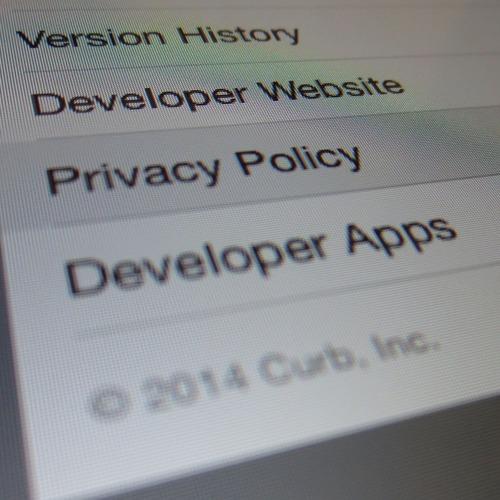
It’s been a rough month for privacy in the world of tech startups. A round of unappealing revelations have left the car-dispatch service Uber looking more than a little creepy, and other tech newcomers don’t appear much better. You’d be crazy not to wonder what all these dot-coms are doing with data they’re collecting about you in the normal course of running their businesses.
And what about today’s new Internet-based companies? Are the startups of 2014 learning anything from Uber’s troubles?
Demo First, Privacy Policies Later
I had front-row access to six new consumer-focused businesses at last week’s Demo conference for tech startups in San Jose, California. After watching their pitches on stage and touring their sites, I quizzed their founders about the Uber Issue.
The first thing I learned was that startup CEOs won’t delay launching an app even if their privacy policy is nonexistent or in shambles. Four of the six companies did not have what anyone would call a fully baked privacy policy. Their CEOs had various explanations for that, none of which would pass muster for a well-established company.
Founders at Lifebox, a Q&A service, and GlanceAt, a mail-management tool, were apologetic about those oversights.
"If we don’t have a privacy policy, it should be there,” said Lifebox CEO Adam Noble. That change hadn’t been made as of Monday evening, while GlanceAt had fixed a home-page link to its privacy policy.
Execs from the photo-sharing app Kandid had a novel excuse for posting a vague and open-ended statement. Explained co-founder Janum Trivedi: “That is just our temporary privacy policy.”
As in, Apple wouldn’t let their app into the App Store without at least some semblance of a policy. Trivedi said lawyers were working on the real thing, which would be more protective of Kandid users’ data than the current statement.

The home-automation-app developer Yonomi had a vague privacy policy posted. Founder Joss Scholten said its app included a more specific terms-of-service document: “If that’s not accessible from the site, we’ll fix it.”
In contrast, energy-management app Curb’s policy is a model of concise clarity. And Uber had clearly made an impact on the parking service ValetAnywhere. Its slightly longer policy deserves credit for stating what data the New York firm doesn’t hoard: “We do not keep a history of your location or any type of location history.”
YAHOO NEWS

Comments
Post a Comment